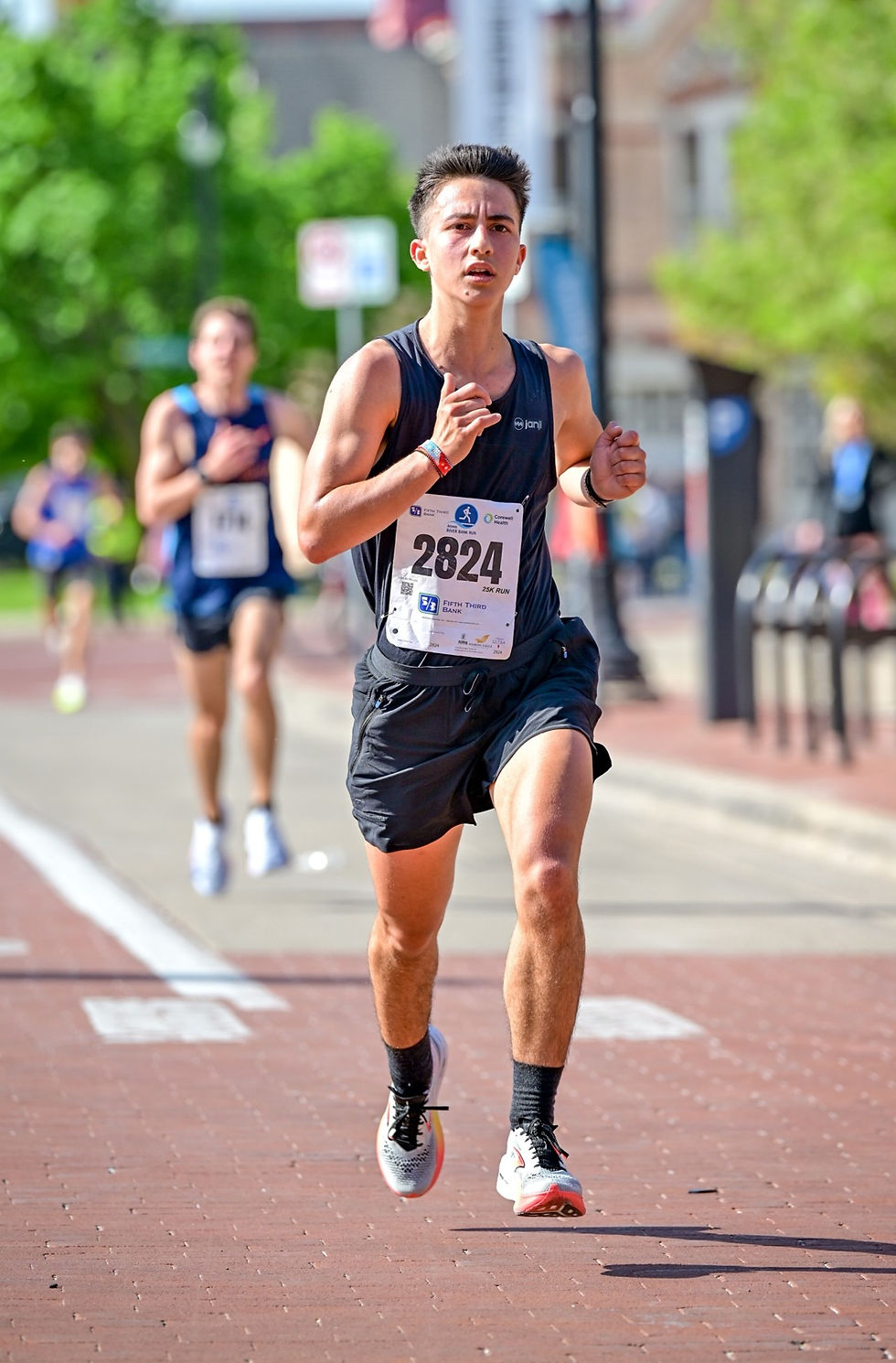Archives: COVID Steals Runner's Sight, Not Her Resolve (Part 1)
- charlie4243
- Feb 6, 2025
- 4 min read

We're reprising our two-part, 2021 profile of Laura Sosalla, who lost her eyesight to COVID, but resolved to run that year's Medtronic Twin Cities Marathon nonetheless. She ultimately finished the race with an all-women's guide-team and was subsequently named ABC News' Person of the Week.
Today, Laura is no longer blind, but she has a permanent visual impairment from Photophobia and Blepharospasms. She's recently married -- to fellow marathoner Mark Putaski -- and plans to run this year's TC Half Marathon for More for the This Old Horse charity team.
Laura Sosalla moves through life with her eyes closed these days. The outside world glares too brightly and too painfully for the outdoors-loving, 37-year-old runner since she contracted COVID-19 and experienced rare neurological symptoms from the virus.
Remarkably however, the photophobia and blepharospasm that continue to affect Laura more than six months after contacting COVID, didn’t stop the counselor/therapist from completing a graduate program and aren’t keeping her from committing to run this fall’s Medtronic Twin Cities Marathon.
“What I see looks like an over-exposed photograph on cloudy days and the world gets swallowed up by the light on sunny days,” Laura told the Connection via voice-dictated emails. “What it feels like is looking directly into the sun. Because everything is so bright, my eyes want to be closed.”
“When I do try to use them they spasm and go out of focus,” she explained. “It is also painful to use them. When I move my eyes they feel like pulled muscles. So, it is easier to keep them shut and to not use them at all. They still work but not in the right way. They feel broken.”
Laura’s view changed starting in early November of last year.
“I had the worst headache of my life,” the Twin Cities resident remembered. “I have had migraines before, and this was 10 times worse. It felt like drills were going into my eyes and that my head was being crushed. I was starting to lose my eyesight and I was also extremely disoriented and losing grasp on what was happening around me.”
Over the course of six days of emergency room and urgent care visits for the same headache, the symptoms finally subsided but turned into something resembling the flu. Then, a few days later, Laura tested positive for COVID-19 and caregivers began treating what she was experiencing as COVID symptoms, still with little effect.
“Until the end of December my eyes progressively got worse to the point where I was almost completely blind,” she recounted. “I also lost taste and smell and hearing in my left ear. Covid impacted every sense I had. I couldn't really feel cold. And I got nauseous if I got too hot.”
Laura likened the experience to being in a dark, echoey tunnel with a blinding light at the end.
“My eyes slowly started to improve, and all other Covid symptoms slowly started to subside. I was sleeping 16 to 18 hours a day from roughly November 12 until the end of December. Slowly but surely, I started to sleep less, had more energy, and gained my senses back,” she said.
“Each day that my eyes improved I thought to myself, OK I can deal with this I can live with this. Each day they would make a tiny step in the right direction. But they started to plateau mid-February and they have more or less stayed the same since then.”
Laura and her medical team don’t know if progress has stopped for good – so much about COVID is still unknown -- but she’s preparing for that reality.
“I count my blessings every day for what I have gotten back. I am so thankful that I was not cognitively impaired from the headache or Covid symptoms that I had. I still have my brain; I still have my body and I am still myself even with my new eyes. I am very lucky, it could have been a lot worse.”
Laura’s ordeal coincided with the final two courses of her graduate program. A driven person, who decided she “can’t not finish” her studies, she completed her program using, with her brother’s help, the listen and dictate settings on her computer and dictated papers for her sister to type and proofread. Once again, for inspiration, she recalled the resolve she needed to finish the Medtronic Twin Cities Marathon she ran in her early twenties.
“I thought about being at mile 16 or 17 when I was exhausted, but it still felt like there was so much more in front of me,” she said. “I would remind myself over and over and over again that I finished that and I can finish these accomplishments and goals, too.”
But the triumph of completing her degree also left Laura with a deep void and the hunger for a new objective. Eager to demonstrate that, despite all she is enduring, she is “still the same person,” Laura’s resolve turned to the marathon itself and the objective of running this fall’s Medtronic Twin Cites Marathon.
Twenty-six miles plus from Minneapolis to St. Paul with her eyes closed.
(Read the second part of Laura's story here.)
This article originally appeared in The Connection in May 2021 TCM's weekly e-newsletter. Subscribe here.


